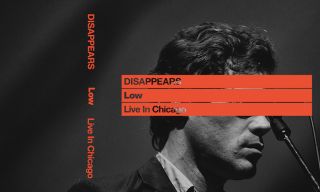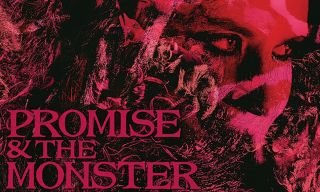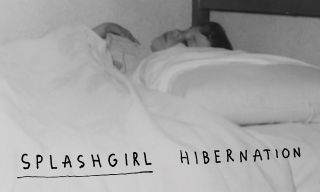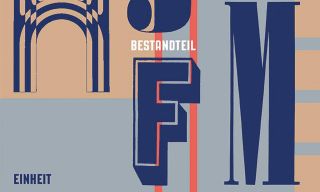You’ll want your ears wide open for Soulsavers’ album Kubrick (San Quentin), which reveals a new dimension to production duo Rich Machin and Ian Glover.
Lately celebrated for collaborations with Depeche Mode’s Dave Gahan, they’ve previously made dark orchestral rock with everyone from Mark Lanegan to Jason Pierce lining up to provide vocals. This instrumental set, however, offers something epically different. Driven by strings, it’s cinematic, atmospheric and luxurious. If the titles – Hal, Torrance, De Large, Mandrake – suggest alternative, reimagined themes to Stanley Kubrick’s finest films, Machin has asserted that it’s intended more as a journey into the overall moods and emotions the movies prompt. Embracing shadows and light, this is a vast, vital release.

If pushed to nominate the ultimate “art rock” record, you could do worse than cite David Bowie’s Low. Now if someone covered the whole album, would that be a definitive Duchampian art statement? Well, Chicagoan band Disappears open up debate with their very own Low (Sonic Cathedral). Recorded live in the city last winter, the band confess, “we chose the hardest one”. Somehow, they pull it off. The jagged pop songs of Side One sound rough but fiery, crashing insane cars, while the avant-garde drones of Side Two access a fresh tilt. Attempting this was a gamble but, as Dylan Howe proved on his album Subterranean, risky re-wirings can reap dividends. What’s the point, you may ask? We would refer you to the word “art”, top of page.

From Berlin to Stockholm, where Promise & The Monster proffer the engrossing Feed The Fire (Bella Union). Billie Lindahl is a Swedish singer-soundscaper whose gothic emotions construct a post-apocalyptic forest where we catch echoes of Nico, The Knife, Chinese violins and Mariachi horns. It’s sometimes unsettling but always, importantly, accessible.

Norwegian “doom jazz” trio Splashgirl made a bigger splash than ever with 2011’s Pressure, and their fifth album Hibernation (Hubro) finds them working wonderfully again with producer Randall Dunn. Synths and electronica infiltrate their customary sparse drama, and they still possess the knack of creating what’s best described as uplifting melancholy.

Irmler/Einheit are Hans-Joachim Irmler (Faust) and FM Einheit (Einsturzende Neubaten). Their latest collaboration Bestandheil (Klangbad), four years in the improvising and gathering, probably qualifies as “musique concrète” or sound collage. Yet that sounds terribly off-putting, and given a free run their noises, grooves and buzzes are attractive.

Our non-linear Euro-quest climaxes in France, where Rouen’s Steeple Remove sound like Can, Neu! and Stereolab playing the mid-section of Yes’ The Gates Of Delirium in post-punk style. Yep, that good. Position Normal (Gonzai), their fourth album, has had three tracks used alongside Mogwai in spooky, enigmatic TV series Les Revenants. Until we return…


